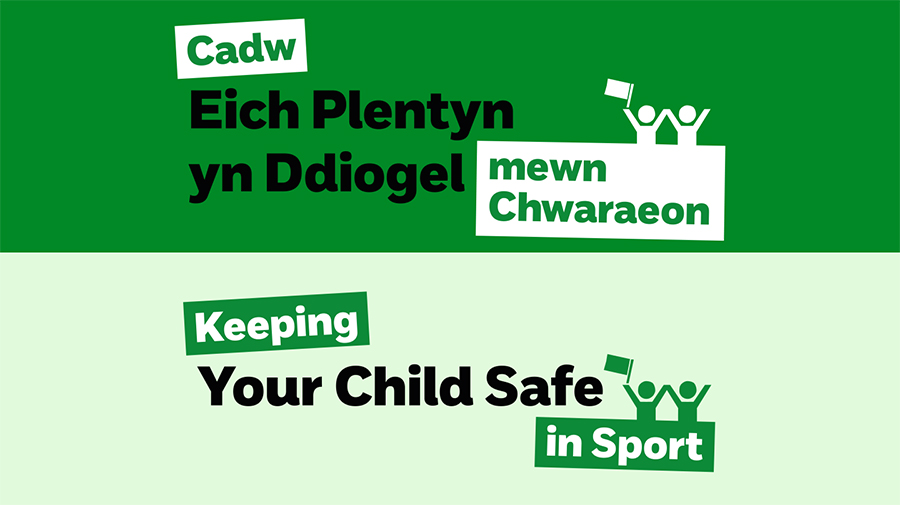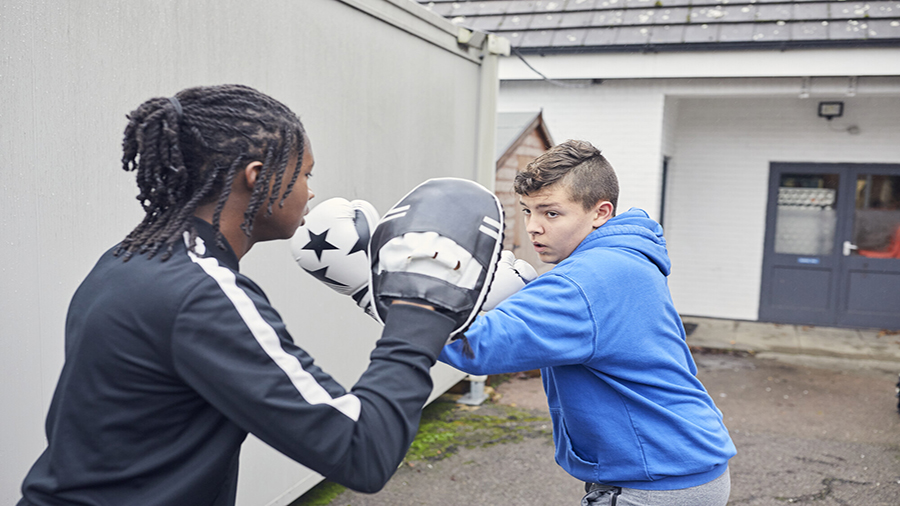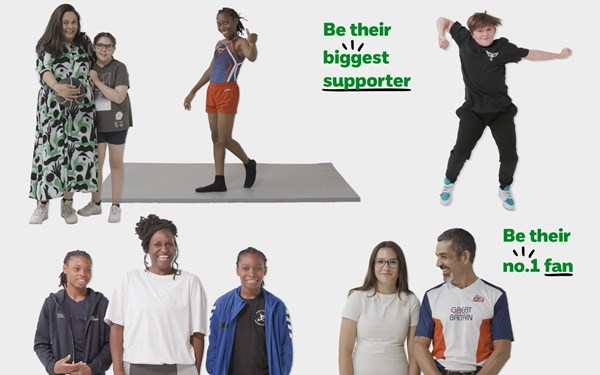Keeping Your Child Safe in Sport Week 2023
Keeping Your Child Safe in Sport is a national, year-round campaign run by the NSPCC Child Protection in Sport Unit (NSPCC CPSU) which aims to raise awareness of the important role parents play in keeping their child safe and happy in sport.
The first week of October is a focus week to highlight the campaign and launch new resources and guidance for parents and carers. To find out more about the campaign and access our excellent resources visit thecpsu.org.uk/parents
Watch the video
What to look for in a sports club, group or activity
It's important to look for a sports club, group or activity that takes the safety and wellbeing of your child seriously. Always check if the club or organisation is accredited or affiliated to a body (e.g. a sports governing body), as this should mean they have the right safeguarding policies and procedures in place. Even if they're accredited, we detail some key things to look for below to ensure they take children's and young people's safety seriously.
The activity should take place in a safe environment with equipment that's regularly checked to ensure it's safe to use.
You can contact a welfare or child protection officer about safeguarding or any other concerns you have.
You should receive a form asking for your consent to the activity, your contact details and any relevant medical information about your child from the club or organisation.
There should be clear procedures and processes for raising complaints and concerns about your child's safety.
This includes vetting and ensuring all staff and volunteers have appropriate references, criminal records checks and the right technical qualifications for the activity.
All staff and volunteers should be trained in safeguarding and child protection. We provide information and online courses if you work with children and young people.
Children and young people should be suitably supervised (based on their age, ability, the activity and venue) by adults who are trained to care for them.
This could be a code of conduct or a code of behaviour. This should outline the boundaries that staff and volunteers should respect when working with children and young people and should address things like discrimination, bullying and social media behaviour.
Remember, it’s never wrong to ask for more information when it comes to children's and young people's safety, wellbeing and safeguarding. Organisations should welcome questions about their activities and policies and should have answers on hand if you ask.
Our Child Protection in Sport Unit (CPSU) helps to improve safeguarding and child protection practices within sports organisations to ensure all children and young people are safe while participating in sports. The CPSU has a range of advice and resources to help parents and carers play their part in keeping their child safe.
Other things you can do as a parent or carer
You can sign up for updates about keeping your child safe in sport here.
Encourage your child's sports club to get involved in our Keeping Your Child Safe in Sport campaign.
Share our support for sports group resources and sports safeguarding tools with your child's sports club.
More advice for parents and carers
Even if the organisation seems safe, it’s best to keep talking to your child to ensure they’re enjoying their experience. If something’s wrong, it’s important they feel like they can talk to you about it. We have a range of tips and advice for having important conversations with your child.
When choosing a club, group or activity with your child, it’s important to ensure they have clear health and safety procedures in place.
Clubs and organisations will list important sports and safety equipment if it’s needed — particularly for outdoor activities or contact sports like rugby, martial arts or boxing. Read through all the information you receive carefully and ensure your child has everything they need to stay safe, warm and dry.
Children's and young people's mental health should always come first, however important the match, game or event may feel. If they aren’t getting time for rest or recovery this could have an effect on their health and wellbeing.
The NHS has guidelines on how much physical activity children under five and children and young people from five to 18 should be doing.
When your child is travelling or staying somewhere overnight with a club or organisation it’s essential you’re clear on the safeguarding procedures to keep your child safe.
These include:
- consent forms
- emergency contact details
- clear, pre-agreed sleeping arrangements
- your child can contact you if they want to.
You can find more information about overnight stays here and our CPSU has information about overnight stays with sports organisations.
It’s important to put your child first and to trust your instincts. If something’s wrong, you aren’t just helping them by reporting it, you’re helping everyone keep children safer. If there’s something wrong and you’re concerned, follow the organisation’s guidelines for recording and reporting concerns, and speak to their welfare officer.
Staying involved in your child’s sports activities helps keep them safe and means you can support them with whatever they need.
It can help to consider what you want your child to get out of the activity:
- Is this also what they want?
- What do they need from you?
You can help to ensure their experience is positive by taking an interest and being supportive from the sidelines whatever the result.
Our CPSU also has plenty of advice about how to support your child.
Keeping Your Child Safe in Sport Week

Thanks to everyone that played their part during Keeping Your Child Safe in Sport Week on 03-09 October 2022 to help protect children and young people from abuse in sport.
There are many ways you can continue to support the campaign throughout the year:
- Post on your social media channels about Keeping Your Child Safe in Sport using #SafeInSport so that more parents and carers become aware of the resources available.
- Take the CPSU’s free e-learning course for parents, or if you're involved in a sports group, club or activity, share it with parents and carers to help them further understand how they can keep their child safe in sport.
- Keep an eye out for campaign updates about Keeping Your Child Safe in Sport Week 2023 by following us on Twitter, Facebook and Instagram
- Sports organisations can also promote our advice and resources year-round to help parents and carers learn more about the role they can play in keeping their child safe in sport. This could be in your newsletters, events or game programmes.
Sir Bradley Wiggins backs Keeping Your Child Safe in Sport
I back the NSPCC’s Keeping Your Child Safe in Sport campaign which strives to prevent abuse of any kind happening to children in sport. We must make sport safe for children, and make it easier for parents, and indeed all people in sport, to recognise and understand how they themselves can support a safer sports environment.
Close the Loophole

In 2017 we began our campaign Close the Loophole to extend the law that makes it illegal for teachers, care workers and youth justice workers to have sex with 16- and 17-year-olds to include other people with a position of power over young people, including sports coaches, volunteers and youth group leaders. This came after the football abuse scandal in 2016, highlighting how adults used their positions of authority in sports settings to abuse children.
We've since made the government take action, and the Positions of Trust law now protects 16- and 17-year-olds from potential abuse in sports environments.
Speaking Out in Sport
Hannah's* story
What happened to me put a strain on all my relationships and affected me deeply.
No child should have to fend off the sexual advances of an adult they trust.
Worried about a child?
If you think a child or young person is at immediate risk of harm, call the police on 999.
If there's no immediate danger and you're unsure what to do, contact our Helpline by calling 0808 800 5000, emailing [email protected] or submitting our online form.
For more information about child abuse, please read our advice on bullying, physical abuse, grooming and neglect.
You might also be interested in...
DISCLAiMER
*This is a true story but names have been changed to protect identities and any photographs are posed by models.








